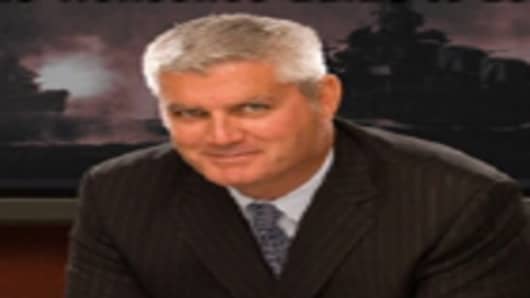By Captain D. Michael Abrashoff
Sometimes, the perfectionists don’t give people room to grow and therefore do not reap the benefits when they invest in their people. Gussie Jones is my exhibit A of what happens when y
ou invest in people.
Gussie’s chance to shine came because of Benfold’s program to give enlisted people the responsibility of being officer of the deck—the person in charge of the quarterdeck when the ship is in port. That person tends security, logs in visitors, and keeps track of everything entering and leaving the ship. Since it is the visitor’s first impression; the quarterdeck has always been a top priority; it’s Navy tradition to tolerate no mistakes in what can be a hectic and demanding job, especially during busy shifts. For that reason, usually officers or chief petty officers stand this watch during the day. But I wanted to give junior people the satisfaction of handling more responsibility, and also free to free up senior people for other, more improtant jobs. Benfold began qualifying first- and second- class petty officers for the deck.
They made some mistakes, which we corrected without berating them, but, in the long run, the program was such a success that other ships began copying it. We decided to go a step further and reach down to the third-class petty officers.
Up stepped twenty-two-year- old Gussie Jones.
After she passed the qualification, she was scheduled to take the midnight watch—the quietest possible time. Nothing doing, I said: put her on from 0700 to noon, the busiest watch of the day. I wanted the rest of the ships to know what we had a third-class petty officer as the officer on the deck.
On Jones’s first watch, my new boss, Commodore Jim Stavidris, unexpectedly showed up. Gussie announced his arrival on the pubic address system. In the Navy, arriving and departing senior officers are announced by their titles, not their names, and the number of bells suitable for their rank. Three- and four- star admirals get eight bells, one- and two- stars get six, and commodores get four. But harried, surprised, and nervous, Gussie gave the Commodore Stavridis six bells and announced, “Destroyer Squadron Twenty-One… arriving”
Hearing this in my cabin, I knew she had made a mistake. I also knew that my boss had probably shown up and not an admiral. So I raced down to the quarterdeck just as my officers were getting there, and before anyone could say anything, I grabbed the commodore by the hand, and with a big grin said, “Let Benfold be the first to predict your selection to the rear admiral next year.” A huge grin broke our across his face. Gussie was embarrassed, but not humiliated. And most important, I sent a message to my officers on how to treat people. (By the way, the commodore was indeed made a rear admiral a year later and is now a four star admiral in command of our Southern Command responsible for Latin America.)
Gussie’s second watch was five days later. It was the noon to 4p.m. watch on a cold, rainy, windy, day in San Diego, and the ship across the pier was attempting to get under way. When a ship leaves pier, sailors from nearby ships pitch in to help cast off the mooring lines, and some of our crew were called for this duty.
But the departing ship’s officers were of the old “hurry up and wait” school. They had the line handlers muster up and then stand in the rain for forty-five minutes—while the officers were warm and dry in the pilot house. Then the ship developed an engineering problem, which prolonged the delay. So Gussie Jones called my duty officer, Lieutenant K.C. Marshall, to the quarterdeck. When he arrived, she said the sailors had been standing in the rain for nearly an hour.
“Do you suppose we could bring them up here to stand under the awning to keep them dry?”
“Absolutely, “ said K.C., and proceeded to get them coffee and hot chocolate from the Benfold café.
How is it that a twenty-two-year-old Gussie Jones, standing her second watch, had the good judgment an common sense to bring those sailors out of the rain when the officers on the other ship did not?
I took a huge chance with Gussie Jones. I could have looked bad if she screwd up. But you know what? A great leader will make a bet on his people. I was never let down when I expanded the duties of my most qualified people. It freed up my senior people to do even more important work


